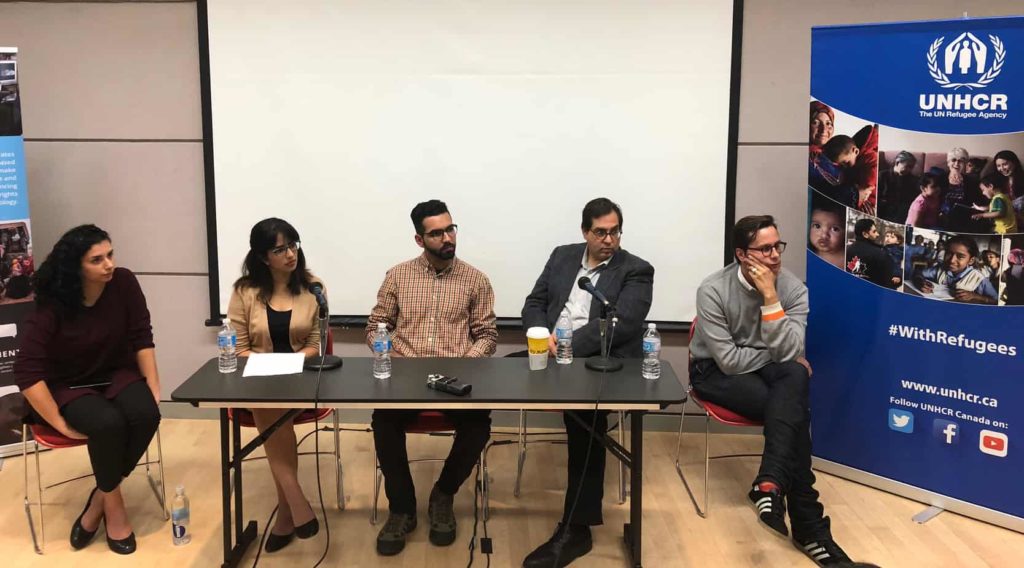
I recently listened to an episode of Krista Tippett’s “On Being” podcast, which explores how friendship and quiet conversations transformed former white nationalist spokesperson Derek Black.
After Black’s ideology was revealed at college, Matthew Stevenson, one of the only orthodox Jews on campus, invited him to Shabbat dinner. Black attended the dinner every week for two years, and his unlikely friendship with Stevenson caused him to challenge and ultimately renounce his ideology.
Tippett describes their friendship as a “roadmap for navigating some of the hardest territory of our time” — what The Discourse has described as setting the table for conversation among people who wouldn’t normally engage with each other — and asked Black how others can replicate the bridge-building dialogue that he and Stevenson achieved. Interestingly, Black responded that he wouldn’t have begun those quiet conversations without first experiencing outrage to his beliefs:
I don’t think I would’ve talked my way out of this belief system without these private conversations with somebody that I trusted in the same way that I wouldn’t have entered into those private conversations if I hadn’t had a community who were very clear that what I was doing was threatening to their livelihood. …The outrage alone would’ve made me a more firm adherent to being a white nationalist. But the quiet conversations couldn’t have happened without the outrage.
Is this the key to building bridges in today’s polarized times? What do you think? Let me know in The Discourse’s Communities channel. I also encourage you to join “Indigenous in the City,” our new Facebook group for urban Indigenous people (which is also open to non-Indigenous people who are sincere, curious and want to learn).
Life in the urban Indigenous nation.
Ian Campbell’s failed bid to become Vancouver’s first Indigenous mayor
For many in the Lower Mainland’s urban Indigenous community, the big news this week is that Squamish hereditary chief Ian Campbell’s bid to become Vancouver’s first Indigenous mayor is over. How do you feel about Campbell withdrawing his name from the mayoral race? Join reporter Wawmeesh Hamilton in our urban Indigenous Facebook group to talk about it.
Help us report on urban Indigenous people in the Lower Mainland
We want to help shine a light on both long-ignored and emerging issues in Vancouver’s urban Indigenous community. But before deciding what to report on, we want to listen to you, so head over to The Discourse’s Reconciliation channel and fill in this brief survey.
Real talk.
We welcomed more than 100 new people to our “Indigenous in the City” Facebook group this week, and since launching last month, there’ve been many thoughtful conversations happening between members.
Serena Winterburn asked the group for their thoughts on First Contact, a three-part docuseries airing on the Aboriginal Peoples Television Network (APTN) that seeks to challenge stereotypes about Canada’s Indigenous people.

Another member, Kathy Walker, chimed in with her take. Do you agree with Kathy? What do you think? Join the conversation in our Facebook group.

Spotlight.

Reporter Alia Dharssi spoke about The Discourse’s toolkit for improving media coverage of the refugee crisis at “PeaceTalks: Media & Refugee Narratives,” which was hosted by PeaceGeeks and the UN Refugee Agency (UNHCR) in Canada on Sept. 13. Peter Klein, executive director of the Global Reporting Centre, and Jean-Nicolas Beuze, representative for the UNHCR Canada, also spoke on the panel.
Shout-outs.

On Aug. 29, The Discourse proudly supported the Vancouver launch of Didihood, “a space for South Asian women working in the media, art and creative industries to connect, work together and inspire the next generation of brown girls to follow their dreams.” Learn more about the organization here. Shout-out to Didihood![end]


